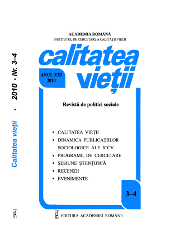The Social Economy in the European Union
The Social Economy in the European Union
Author(s): Eleftheria Koumalatsou, Daniel Arpinte, Sorin Cace, Harry TheotokatosSubject(s): Social Sciences
Published by: Editura Academiei Române
Keywords: social economy; social enterprises; nonprofit organisations; social inclusion.
Summary/Abstract: The concept and term social economy is very broad, but it is generally understood to refer to all types of economic and social activities that take place in many legal forms between the boundaries of the private and public sector. Social economy is a term that is commonly used in continental Europe, and in the European Union institutions, while in the USA, and other countries, the dominant terms tend to be that of Non-Profit Organisations (NPOs) and Third Sector, which is also commonly used internationally. There are also other terminologies describing social economy, like solidarity economy. Here we adopt the use of the term social economy as the most appropriate one for the reasons analysed below. And we also make only a brief reference to the differences and similarities between the concepts of social economy and NPOs. Furthermore, as the theoretical and the research areas covering the social economy/third sector are vast, complex and full of different interpretations, particularly on its various sub-components, it is beyond the limits of this paper to deal with these in detail. The paper is divided into two sections. In the first section, we address theoretical and conceptual approaches of social economy, on its evolution, its definitions and on the NPO approach. In the second section, we discuss and describe the current main components of the social economy in the EU and how it is structured, in terms of definition, legal framework, range of activities and institutional representation.
Journal: Calitatea vieţii
- Issue Year: XXI/2010
- Issue No: 1-2
- Page Range: 137-160
- Page Count: 24
- Language: English

